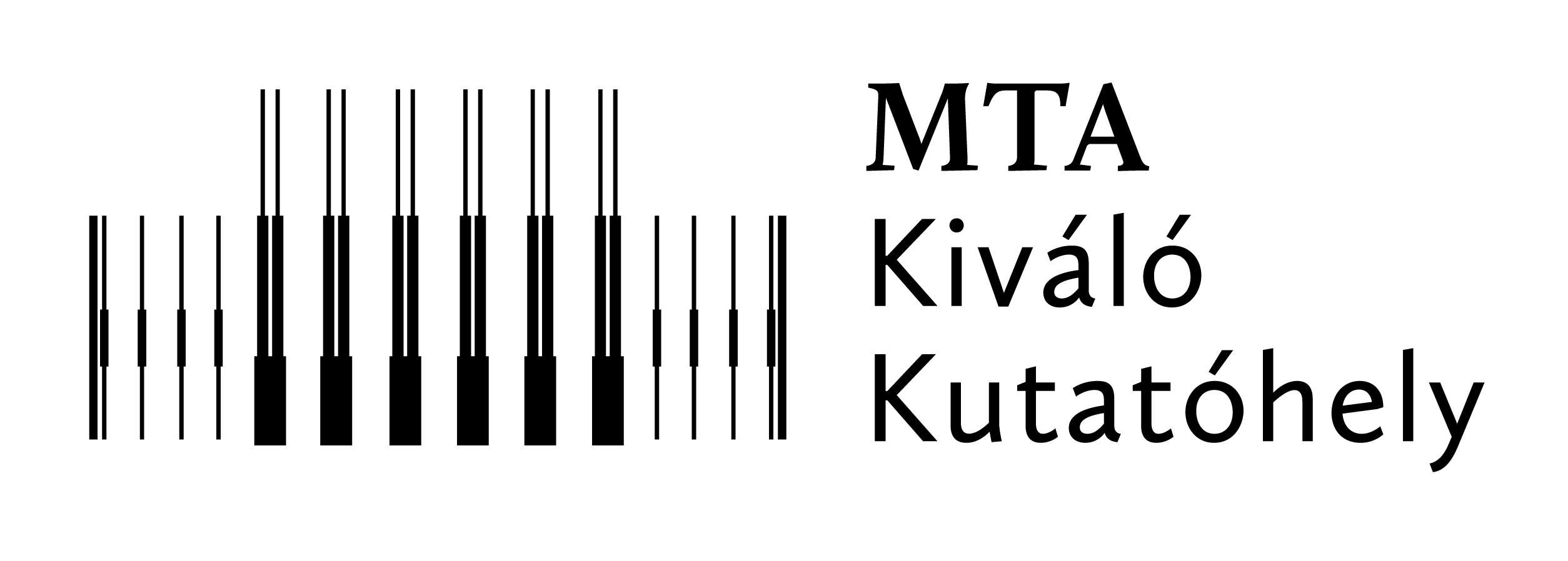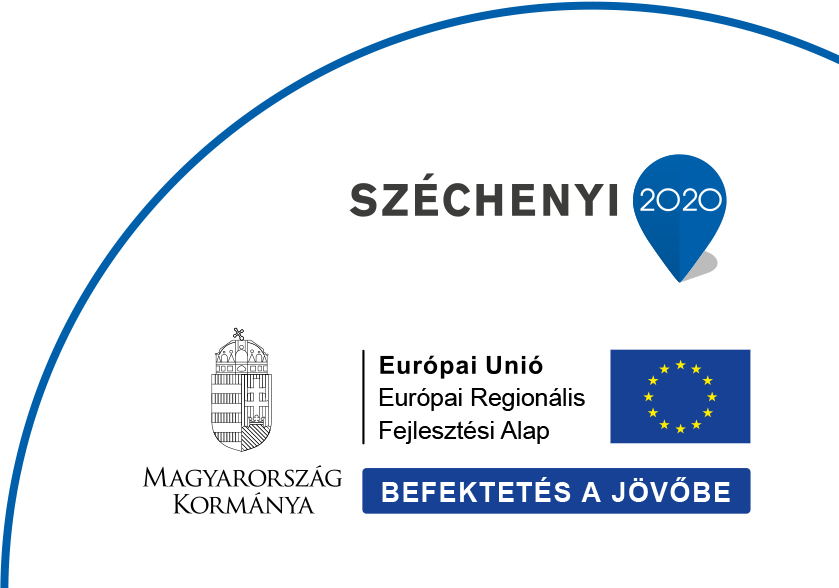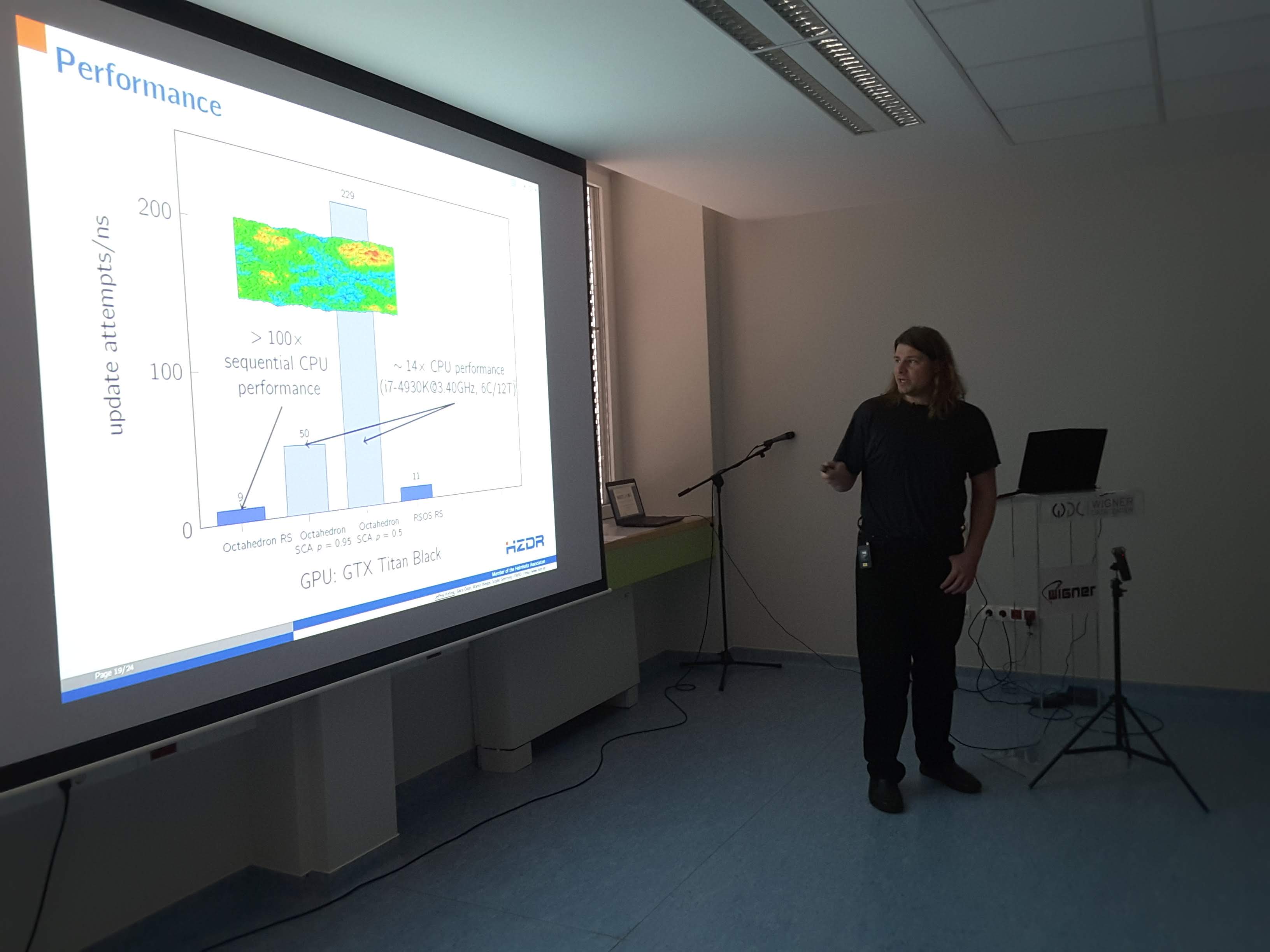
Parallel és a multiprocesszoros megoldásokkal foglalkozott a tudományos kutatásokban az MTA Wigner Fizikai Kutatóközpont által immár nyolcadik alkalommal a Wigner Adatközpontban megrendezett GPU Day.
A rendezvényen a résztvevők bemutathatták a jövő számítástechnikáját: a parallel és multiprocesszoros megoldásaikat a fizika, a csillagászat, az orvostudomány, és a biológia számos területéről: többek között volt szó molekuláris biológiai alkalmazásokról, gravitációs hullámokról, csillagászati és holografikai alkalmazásokról is.
Mintegy 120 fő regisztrált a rendezvényre, amelyen bemutatásra kerültek a közeljövő új parallel technológiái mind hardveres mind pedig szoftveres oldalról.
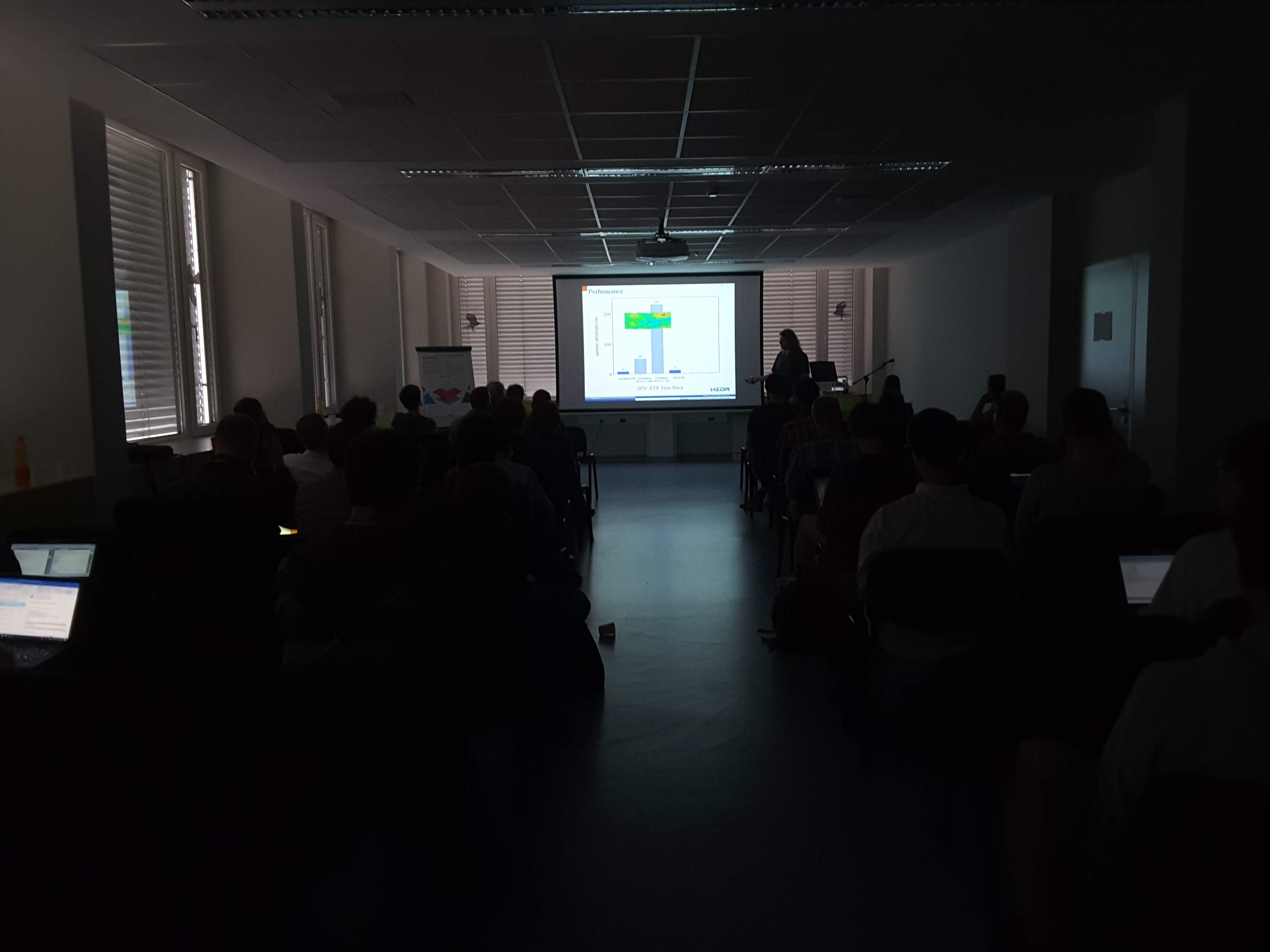
A GPU Day 2018 szervezője az MTA Wigner FK és főtámogatója a Lombiq KFT , és a EPAM Systems Ltd volt, akiknek a segítségével a weboldalon hamarosan elérhetőek majd az előadások videói online is.
A GPU Day 2018 eseményen több külföldi intézet is képviseltetette magát: CERN, Ecole Polytechnique Lausanne, Nicolaus Copernicus Astronomical Center Warsaw, Purdue University. A nemzetközi kapcsolataink építése mellett hazai kutatóintézetek és egyetemek (Bajai Obszervatórium, ELTE, BME, MTA Molekulabiológiai Kutatócsoport, BME, Pázmány Péter Katolikus Egyetem, Óbudai Egyetem), valamint ipari partnerek is képviseltettek magukat (Lombiq, Holografika, EPAM, Codeplay, VRVis Research Center. Microsoft, Intel.
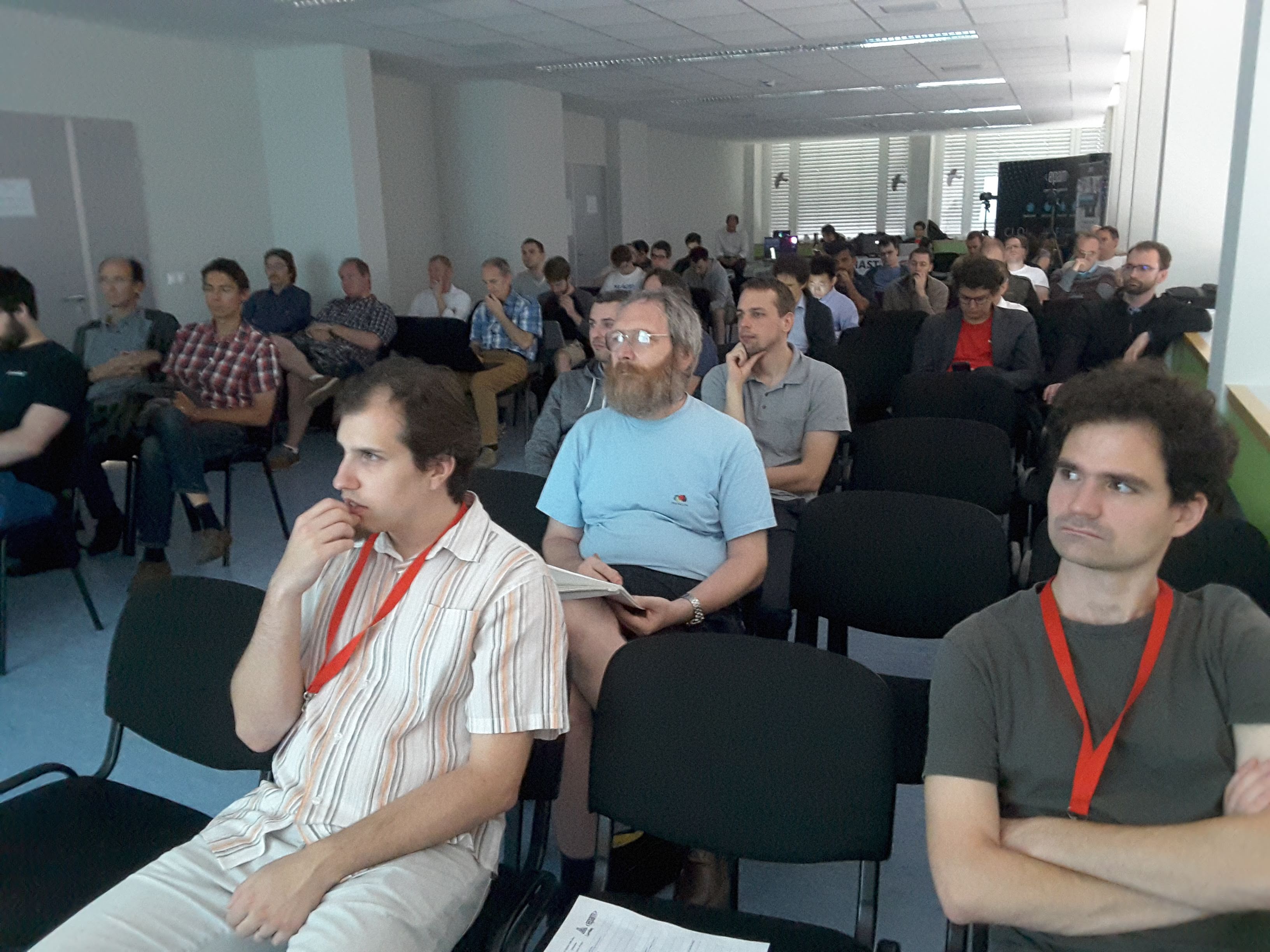
Elhangzott meghívott előadások:
Lévai Péter (Wigner RCP)
Zoltán Lehóczky (Lombiq Ltd.), Álmos Szabó (Lombiq Ltd.)
3. Quantum Computing: basic principles, present architectures, future possibilities
Zoltán Zimborás (Wigner RCP)
5. Parallelising the Modern C++ Standard Library
Christopher Di Bella (Codeplay Software Ltd.)
6. OP2-Clang: A source-to-source translator using Clang/LLVM LibTooling
Gábor Dániel Balogh (Faculty of Information Technology and Bionics, Pázmány Péter Catholic University)
7. Improving Locality of Unstructured Mesh Algorithms on GPUs
András Attila Sulyok (Pázmány Péter Catholic University, Information Technology and Bionics)
8. Optimizing Linear Algebraic Operations for Improved Data-Locality
Daniel Berenyi (Wigner RCP)
10. Modern applications of GPU assisted ray tracing
Attila Barsi (Holografika Ltd.)
11. A functional photogrammetry library
Attila Szabó (VRVis Research Center, Vienna)
12. Functional programming vs. Efficient Computer Graphics
Georg Haaser (VRVis Research Center, Vienna), Harald Steinlechner (VRVis Research Center, Vienna)
13. A functional Shader library
Georg Haaser (VRVis Research Center, Vienna)
14. Functional Programming in the Wild
Harald Steinlechner (VRVis Research Center, Vienna)
15. Landscape Heatmap Simulation
Gernot Ziegler (Geofront e.U.)
16. LambdaCube 3D - A purely functional API for GPU graphics
Csaba Hruska (Freelancer)
17. I saw the future. It's Mixed Reality!
Márk Szabó (Microsoft)
18. Enhanced Sequence Modeling with Deep Learning
Bálint Gyires-Tóth (Budapest University of Thechnology and Economics, Department of Telecommunications and Media Informatics)
19. ML/AI on Azure for students and organizations
Vivien Rajz (EPAM Ltd.)
20. Parallel evaluation of neural game value networks
István Borsos (Centre for Energy Research, Institute for Technical Physics and Materials Science)
21. Neural Network study on 2d scalar field theory
Kai Zhou (Frankfurt Institute for Advanced Studies - Goethe-Universität)
22. Application of machine learning in gravitational waves survey
Filip Morawski (Nicolaus Copernicus Astronomical Center, Warsaw)
23. Characterizing the chloride translocation pathway in the CFTR channel
Tamás Hegedűs (Molecular Biophysics Research Group, Hungarian Academy of Sciences, Hungary, Department of Biophysics and Radiation Biology, Semmelweis University, Hungary)
24. Quad-tree Generation with RNN for Efficient Graph Visualization
Richárd Forster (CERN)
25. Efficient Correlation-Free Many-States Lattice Monte Carlo on GPUs
Jeffrey Kelling (Helmholtz-Zentrum Dresden-Rossendorf, Department of Information Services and Computing, Dresden)
26. GPU accelerated solution of large number of independent ODE systems
Ferenc Hegedűs (Department of Hydrodynamic Systems, Budapest University of Technology and Economics, Budapest)
Péter Hartmann (Wigner RCP.)
28. Calculation of dissipative phase space corrections
Dénes Molnár (Purdue University, West Lafayette, USA)
29. High-Energy Jet Interaction Monte Carlo for the Future Generations: HIJING++
Gábor Bíró (Wigner RCP)
30. Multi-GPU Simulations of the Infinite Universe
László Dobos (Eötvös University, Budapest)
31. Light curve modeling of eclipsing stellar systems
Gábor Marschalkó (Szeged University, Baja Observatory)
32. Discretized models of radially pulsating stars
Gábor Kovács (Eötvös University, Budapest)

